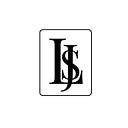People may find it difficult to read books. Reading books, especially those without illustration — all text — quickly bores me. It is difficult for me to keep up with the storyline, maintain my focus, and read pace. I remember forcing myself to read a small amount of global news and journal articles, and I did not enjoy it.
Over time, I experimented with finding the proper habit of consistently reading and becoming an avid reader. It was difficult because it required trial and error. Here are three mistakes I made that you should avoid:
1. Read All Topics
My reading experience was poor because I only chose topics with positive reviews. As it turned out, it did not work well for me. I had to stop reading several times because I was unfamiliar with the material. Reading is an effort to acquire information, so when selecting a book to read, we should choose something that we are familiar with or relevant to our lives.
A book should not be read as a race but as a way to enjoy it. You can begin by reading fiction books. I recommend reading non-fiction books because they provide information on a specific topic.
My book-reading pieces of advice:
- Remember! Depending on your personal preferences, you may not like some books. Get a book to help you learn, gain knowledge, spark curiosity, or solve problems.
- Just because a book has a 5-star review or is a bestselling book does not mean you must buy that book.
- Read the summary. Do not forget to research the summary, author’s interviews, or in-depth book review.
- Explore the book’s content sample, if available. You can decide whether to continue reading or look for another one.
Those steps may take some time, but they are worthwhile.
I began reading books on self-improvement topics. It gradually increased my motivation and encouraged me to read more. I discovered a few exciting ideas that I could use to improve my life.
2. Read with No Breaks
I read intending to complete it in one sitting. I want to finish one book before beginning another. When I read through several chapters, my eyes are tired, my brain loses focus, and my mindset changes.
Reading a book is a demanding thinking process that should not be sustained for long. We will waste our time and energy if we start losing focus and interest. Instead, we must become aware of our reading state of mind. I take 10-minute intervals after reading for 40 minutes and repeat. I recharge my mind and body with this setup before continuing to read.
There is no rush when it comes to reading a book. Take deep breaths, take a quick walk, and drink some water. Give yourself a break to refresh your body and optimize brain performance after absorbing a large amount of information. Remember that a small break can help us control our pace. It is not easy to continue good reading habits. You can be a consistent reader once you establish the habit of reading.
3. Read to Forget
I’ve even read a few books in a rushed manner. I thought having many books read was a great accomplishment, but it is untrue. I did not recall the information I had obtained from those books a few weeks later. It was not the best method overall for retaining information.
Don’t expect to remember everything you read in a book simply by reading it. Taking notes is the perfect way of remembering what you read. People have different ways of writing notes. Some people keep physical notes, while others maintain digital notes. What counts is that we build the habit of writing down what we understand from books.
My simple note-taking methods are:
- Highlighting the sentences I find insightful. Putting highlights will make me look back on those exciting parts.
- Writing down a summary of one of the chapters I’ve finished. This method will help us connect all pieces of information by focusing on the summary. It is not an overnight skill, but it will gradually improve as we consistently take notes.
I don’t believe in the kind of magic in my books. But I do believe something very magical can happen when you read a good book. — J. K Rowling
